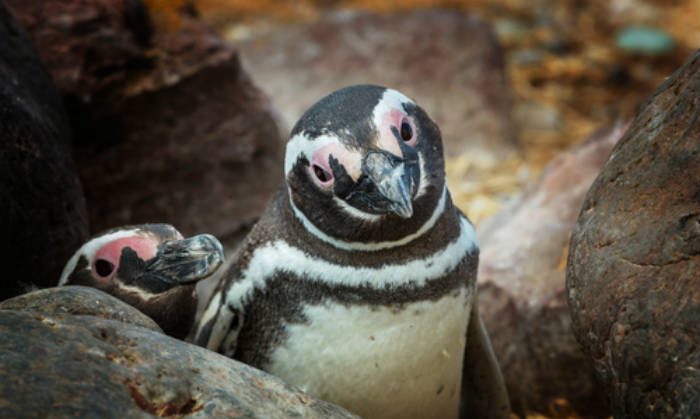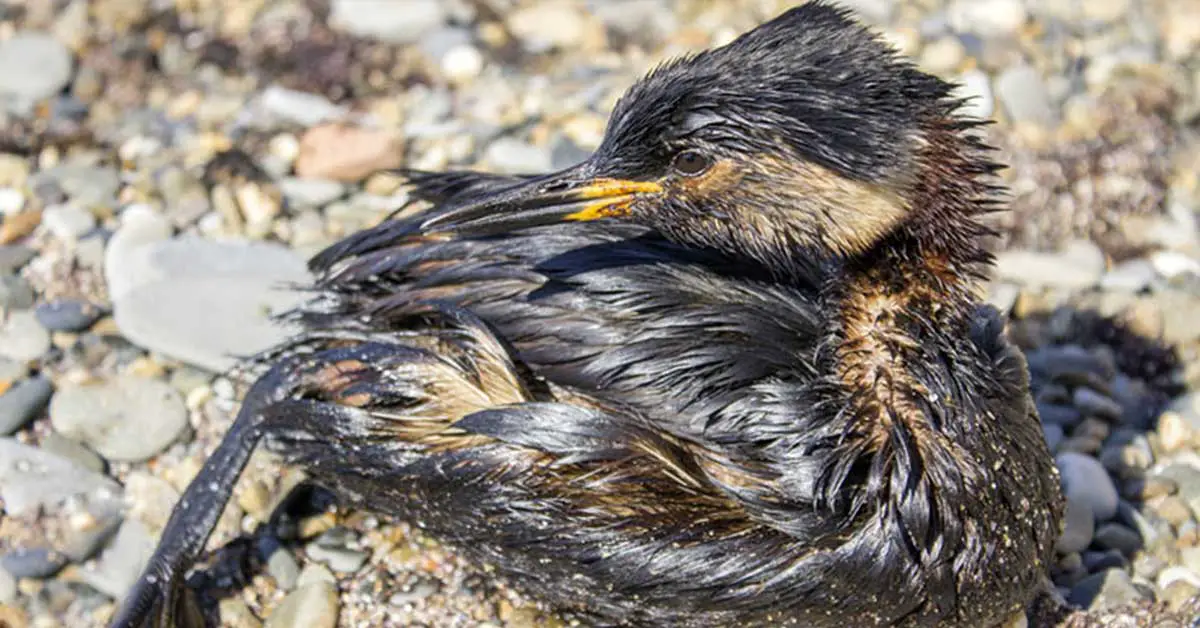With Winter quickly approaching, many of you might be dreaming of a vacation getaway to someplace where the sun never stops shining and your tan never leaves. Sadly, we can’t really make that a reality for you, but we can take you to a beach in Brazil and share a story that will warm your heart. In 2011, Joao Pereira De Souza, a retired bricklayer and part-time fisherman, was visiting his local beach in a village just outside of Rio de Janeiro in southeast Brazil. As he was walking along the beach, Pereira spotted a small, dying Magellanic Penguin covered in oil – a devastating reality for penguins and other birds.
Being the kind-hearted man that he is, De Souza brought the penguin home, washed the oil off of its wings, and fed him sardines – not just once, but for an entire week. When he tried to guide the penguin (who he named ‘Dindim’) back to sea, it was impossible… so impossible that De Souza ended up with a roommate for almost a year.
“He stayed with me for 11 months and then, just after he changed his coat with new feathers, he disappeared,” said De Souza. [1]
Dindim, the Magellanic Penguin
When Dindim finally decided to leave the island, De Souza had no idea where the penguin left to. However, three or four months later, the same one showed up again and spotted De Souza on the beach.
“I love the penguin like it’s my own child and I believe the penguin loves me,” said De Souza. [1] “No one else is allowed to touch him. He pecks them if they do. He lays on my lap, lets me give him showers, allows me to feed him sardines, and to pick him up.”
Magellanic penguins are known to migrate thousands of miles every year between southern Patagonian breeding colonies and feeding grounds further north, sometimes in places such as Brazil. Some believe that Dindim covers almost 5,000 miles in his journeys back to the man who saved his life. Every year since 2011. [2]
“He arrives in June and leaves to go home in February and every year he becomes more affectionate as he appears even happier to see me.” [1]
How Oil Spills Affect Magellanic Penguin

Although De Souza and Dindim have a unique and beautiful friendship, we still have wonder about how it happened.
One of the reasons is because strong ocean currents can trap species such as penguins, seals, turtles, whales, and dolphins. When they become trapped, the current can carry them to unfamiliar territory, including the Brazilian coast. However, this is problematic because, according to oceanographer David Zee, this tropical region is staying too warm for too long. Especially for cold-water animals like Magellanic penguins. [3]
Another problem that Dindim and other penguins face, said Zee, is “increased danger with the ongoing contamination of the oceans with oil and other derivatives.” [3]
Oil spills can be disastrous for the land, the water, and the species inhabiting both of those geographies. They can even “hasten the extinction of an entire species.” [4]
In addition to oil spills eroding shorelines that eliminate penguins’ resting and nesting places, they can extremely damage surviving birds both externally and internally.
“Crude oil is comprised of dangerous chemicals such as hydrogen sulfide and benzene, which is toxic and burns the bird’s skin. The sticky oil is heavy and affects the buoyancy of the bird. This makes it difficult for the bird to swim and move about freely.“
When the penguin begins to preen its feathers in an attempt to remove the oil, the toxic material is ingested, causing damage to the bird’s internal organs and sometimes death. In some cases, red blood cells can be damaged, the liver may be impaired, and other body systems such as the circulatory and respiratory systems may be severely damaged.[4]
While we trust that De Souza and Dindim’s friendship warmed your heart, we also hope that your awareness of the dangers of oil spills will help create a world that will prevent future ones.
Keep Reading: The Glistening-Green Tanager Is So Bright It Looks Like It Could Glow In The Dark
Sources
- “Penguin swims 5,000 miles every year for reunion with the man who saved his life.” Metro. Alison Lynch. March 9, 2016.
- “Patagonian Penguin Finds Second Home in Brazil.” Youtube. Oct 23, 2015
- “Meet Dindim, the penguin who returns to his human soulmate every year.” Independent. Janet Tappin Coelho. March 7, 2016.
- “How Oil Spills Affect Penguins.” Act for Libraries

